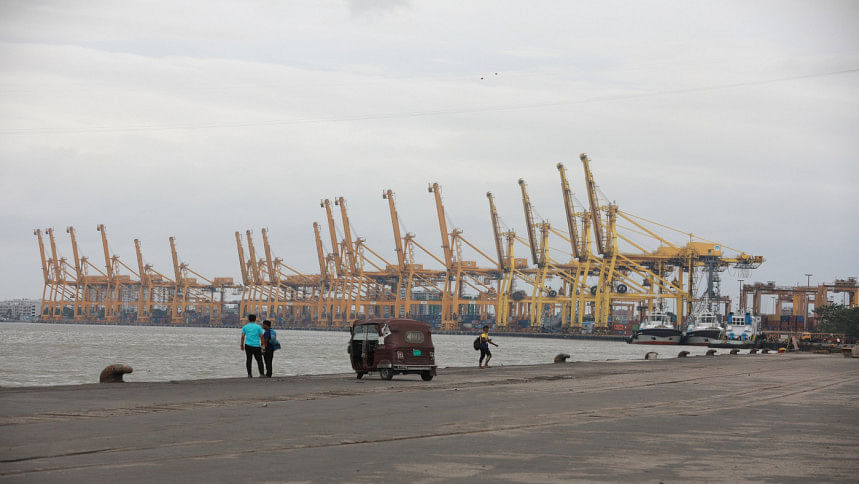Customs strike disrupts Chattogram Port, 5 lakh tonnes of goods stuck offshore

The nationwide pen-down strike by customs officials demanding the repeal of the National Board of Revenue (NBR) Ordinance has severely disrupted operations at Chattogram Port and 24 customs stations, leaving nearly 5 lakh tonnes of goods stranded offshore.
Since May 15, customs officials have stopped work from 9:00am to 3:00pm each day in protest, later extending the stoppage until 5:00pm.
This has stalled cargo clearance, leading to a backlog of 17 container vessels at the port's outer anchorage, according to port data.
The ships, carrying about 24,000 TEUs (twenty-foot equivalent units) of goods, are loaded with essentials such as sugar, peas, chickpeas, and industrial raw materials including cement clinker, scrap, stones, and steel products.
Under customs regulations, no consignment can be cleared without assessment and examination, effectively halting clearance at value-added tax (VAT) offices, Export Processing Zone (EPZ) customs, and the customs bond commissionerate.
From May 15 to May 21, an average of 4,500–5,000 consignments were processed daily.
But the strike slashed that figure by 20 to 30 percent — and by as much as 80 to 85 percent yesterday when officials extended their stoppage until 5:00pm.
Only 683 shipments were cleared that day — the lowest in a year, according to Chattogram Customs House.
Officials warned that the situation will worsen as at least four more ships are scheduled to dock soon, with no remaining space at the jetty for containers.
An additional six to eight vessels are expected to arrive during this period.
Although export clearance is technically ongoing, it too is affected.
The delays in offloading imports have created a ripple effect, preventing timely loading of export-bound cargo onto vessels.
Garment exporters, in particular, are facing growing uncertainty.
"Our several export shipments need to go out before Eid," said Syed M Tanveer, managing director of Pacific Jeans.
"Delays in raw material clearance are already affecting export production. If we can't ship on time, we may have to use air freight — which is 15 to 20 times more expensive."
Tanveer warned that the NBR-related stalemate could severely hurt Bangladesh's exports if not resolved soon.
The protests stem from opposition to changes proposed under the NBR Ordinance, which customs officials claim undermine their authority and disrupt operational structure.
Port officials said some shipments were processed after 5:00pm yesterday, but clearance volumes remain far below normal.
The strike will continue tomorrow with no sign of a resolution yet.

 For all latest news, follow The Daily Star's Google News channel.
For all latest news, follow The Daily Star's Google News channel. 



Comments